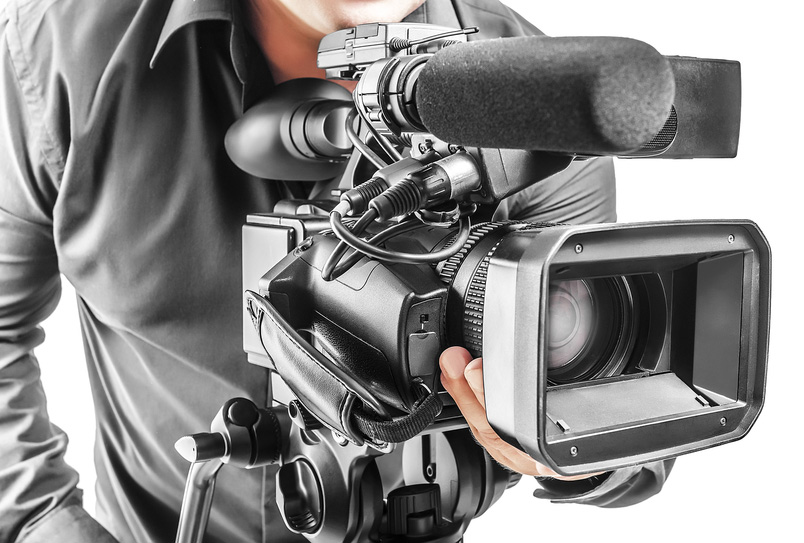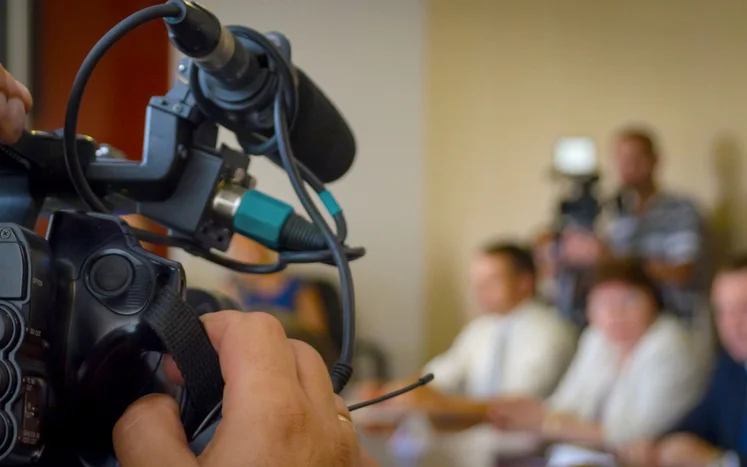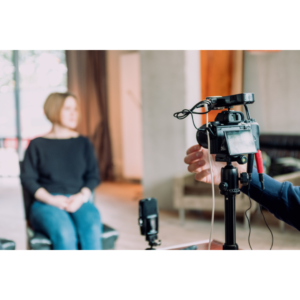The Duty of Lawful Videography in Depositions and Trials
Legal videography has actually arised as a necessary tool in both depositions and tests, providing a diverse approach to recording witness testimonies. As legal specialists progressively identify its value, it motivates a deeper assessment of just how these visual documents can influence juror understandings and test results.

Significance of Lawful Videography
Lawful videography plays a critical duty in the documentation and presentation of depositions and trials. This customized area combines technical abilities with lawful knowledge to produce a trusted record of proceedings that can substantially affect case outcomes. The appearance of lawful videography boosts the understanding of witness testimony, allowing jurors and judges to observe not only the talked words yet additionally the disposition, emotions, and body language of the witnesses.
In enhancement, lawful videography offers an objective account of events, minimizing the potential for misinterpretation that can occur with written records alone. This aesthetic paperwork serves as an important tool during test discussions, assisting in a clearer and more persuasive story for both complainants and offenders. The capacity to replay video clip segments throughout court procedures enables lawful teams to emphasize vital factors, reinforcing their debates successfully.
The significance of legal videography expands beyond the court room; it likewise plays a vital role in protecting evidence for future referral, whether for appeals or further lawsuit. As such, its integration into the lawful procedure is important for making certain a reasonable and accurate depiction of the realities, ultimately contributing to the search of justice.

Process of Legal Videography
While recording the subtleties of depositions and trials, the process of legal videography includes numerous crucial steps that make sure high-quality, exact recordings. An expert lawful videographer prepares by examining the instance products and recognizing the details needs of the deposition or test. This prep work consists of acquainting themselves with the individuals and the context, which assists in recording pertinent details.
On the day of the recording, the videographer sets up the necessary equipment, which typically includes high-def electronic cameras, microphones, and correct lights. Making certain optimum angles and audio top quality is vital, as it straight affects the efficiency of the recording. The videographer communicates with attorneys and participants to develop methods, making sure that everybody comprehends the recording process.
Throughout the deposition or test, the videographer carefully tape-records the proceedings, paying very close attention to both spoken and non-verbal signs. This includes capturing the demeanor and responses of witnesses and lawyers. After the session wraps up, the videographer may modify the video footage for clarity and conformity with lawful standards, generating a last product that properly shows the proceedings for future referral and usage in legal contexts.
Advantages in Depositions
The consolidation of videography in depositions offers countless advantages that enhance the general process of collecting evidence. One key benefit is the capacity to catch witness testimonies with aesthetic and auditory integrity, supplying a more precise representation of the witness's temperament, tone, and body language. This multidimensional strategy enables attorneys and courts to evaluate credibility better than traditional written records alone.
In addition, videographed depositions work as an effective tool for maintaining testimony. Must a witness become not available for test, their recorded deposition can be played in court, making certain that their evidence stays obtainable and relevant. This element significantly minimizes the threat of losing important details that could affect situation end results.

Finally, videography improves the general professionalism and trust of the deposition procedure, instilling confidence in clients concerning the thoroughness of their legal representation (legal videography). By leveraging technology, lawyers can dramatically boost the efficiency of depositions
Effect on Trials
In many trials, the assimilation of videography can substantially influence the presentation of proof and the court's understanding. Legal videography records witness statements and vital evidence in a vibrant style, enabling jurors to engage with the product on several levels. This aesthetic element enhances the narration aspect of a test, supplying context and emotional vibration that standard text-based evidence might lack.
Moreover, video clip recordings can act as effective tools for impeachment throughout interrogation. When discrepancies emerge between a witness's prior declarations and their courtroom testament, video proof supplies an objective referral that can persuade jurors' point of views. This immediacy and clearness can bolster the credibility of a celebration's narrative while all at once undermining opposing debates.

Future Trends in Legal Videography
As we look toward the future of legal videography, several arising fads assure to improve its duty within the court room. One substantial fad is the assimilation of fabricated knowledge (AI) in video clip analysis and modifying. AI can improve the process of identifying key moments in recorded depositions, permitting lawyers to swiftly access appropriate material, thereby enhancing performance in instance prep work.
Furthermore, the rise of virtual fact (VIRTUAL REALITY) and enhanced reality (AR) technologies is anticipated to change exactly how jurors experience evidence. legal videography. By immersing jurors in a simulated setting, these technologies can give a much more profound understanding of intricate scenarios, leading to even more informed considerations
Furthermore, the boosting need for remote depositions, accelerated by the COVID-19 pandemic, will likely proceed. Legal videographers will certainly need to adjust to brand-new software and systems to guarantee top quality recordings in digital settings.
Last but other not least, the expanding emphasis on data security will certainly necessitate more stringent protocols for saving and sharing video proof. As the lawful landscape progresses, legal videographers need to stay abreast of these patterns to keep their significance and performance in the judicial process.
Verdict
In summary, lawful videography offers an important feature in the judicial process, boosting the integrity of depositions and trials. By catching the nuances of witness statements, this tool not only protects crucial evidence yet also aids in important source offering information efficiently to jurors. The relevance of visual paperwork in reviewing trustworthiness and promoting cross-examination can not be overstated. As modern technology remains to evolve, legal videography is positioned to more change its role within the legal landscape.